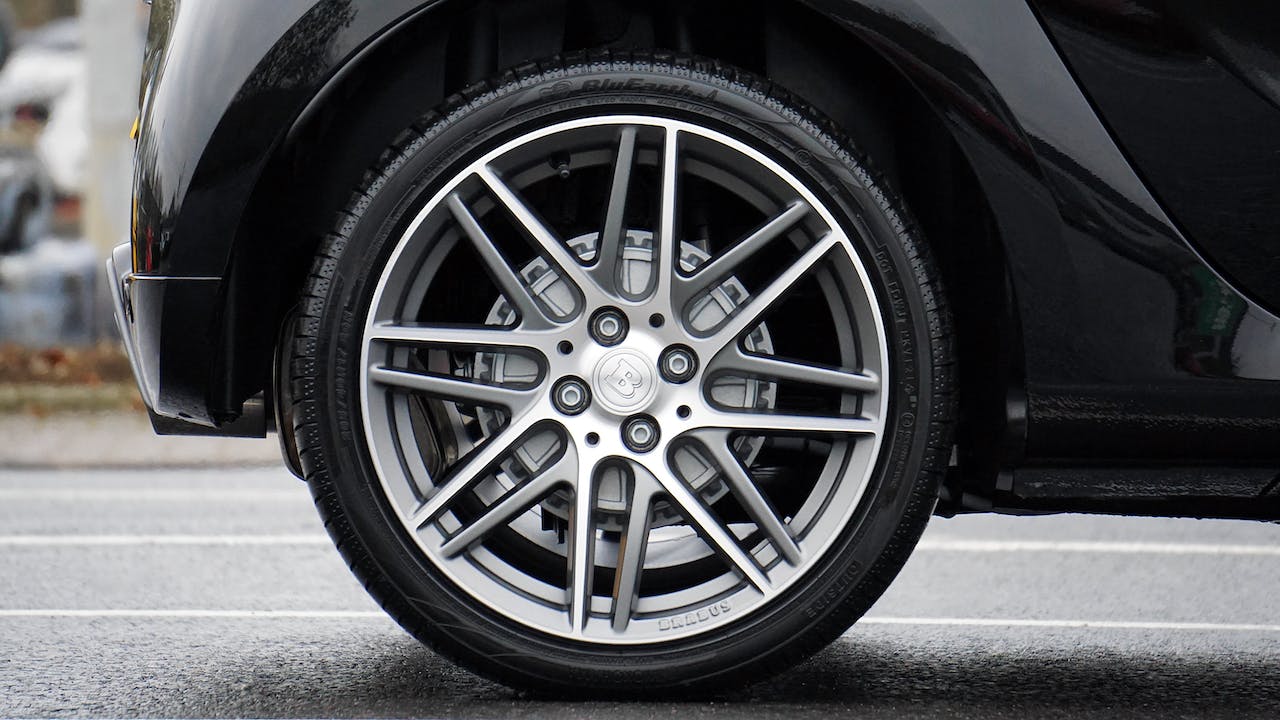Dealing with an overheating car due to a clogged radiator can be a nightmare. Discover the top solutions that can save you from this automotive headache. From simple DIY fixes to professional interventions, we’ve got you covered. Say goodbye to sweaty brows and roadside breakdowns. Keep your engine running smoothly with these effective remedies. Whether it’s a quick flush or a thorough inspection, you’ll find the answers you need right here.
Recognize Symptoms of a Clogged Radiator
Monitor Readings
Please keep an eye on the temperature gauge readings so you can catch any signs of overheating early. If the gauge shows high temperatures and your car begins to overheat, it could indicate a problem with your radiator.
Listen for any unusual noises coming from the engine. These sounds might signal cooling issues related to a clogged radiator or overheating problem. Ignoring these sounds can lead to more severe damage.
Visual Inspection
Inspect under the vehicle for any steam, coolant leaks, or overheat. Steam escaping from the engine bay or visible coolant leaks are clear indicators of a potential radiator blockage.
Look out for coolant puddles under your car. A clogged radiator can cause leaks, leading to a loss of coolant and subsequent overheating issues.
Identify Signs of a Blocked Radiator
Discoloration
When checking for signs of a clogged radiator, pay attention to the color and clarity of the radiator fluid. Look for any discoloration or unusual debris floating in the fluid. This could indicate contamination or blockage within the radiator system.
Reduced Heat Output
A key indicator of a bad radiator fan or a blocked radiator is reduced heat output from the car’s heater. If you notice that the heater inside your car is not producing enough heat, it might be due to restricted coolant flow caused by a clogged radiator.
Corrosion and Rust
Inspect the exterior of the radiator for any visible corrosion or rust. Corrosion buildup on the radiator can lead to blockages and hinder the proper circulation of coolant through the system. Rust spots can also indicate potential leaks or weaknesses in the radiator structure.
When examining your car’s radiator, these signs can help you identify if there is a blockage or issue that needs to be addressed promptly.
Confirm a Leaking Radiator
Check for Puddles
Examine beneath the vehicle to spot any puddles of coolant, indicating potential radiator leaks. These puddles are often a clear sign of a coolant leak issue that needs immediate attention.
Inspect Radiator Hoses
Look closely at the radiator hoses and connections for any visible signs of wear or damage. These could be indicative of leaks in the system, leading to coolant leaks and subsequent overheating problems.
Pressure Test the Cooling System
Using a pressure tester, evaluate the cooling system for any pressure loss, which could point towards a potential leak in the radiator. This test is crucial in identifying any underlying issues causing the overheating problem.
Understand Engine Overheating Causes
Low Coolant Levels
Low coolant levels can lead to engine overheating. When the coolant level is insufficient, the engine can’t regulate its temperature adequately. This lack of coolant circulation results in excessive heat stress, causing the engine to overheat and potentially leading to severe damage.
Malfunctioning Radiator Fans
A malfunctioning radiator fan is another common cause of engine overheating. The fan plays a crucial role in cooling the radiator by dissipating heat. If the fan fails to operate correctly, it hinders the cooling process, leading to overheating. Regular maintenance checks are essential to ensure the fan functions properly.
Defective Thermostat Operation
Defective thermostat operation can also contribute to engine overheating. The thermostat regulates the flow of coolant through the engine. If it malfunctions and fails to open at the right temperature, it disrupts the coolant flow. This disruption prevents proper cooling, resulting in overheating issues.
Unclog a Clogged Radiator
Drain Fluid
To unclog a clogged radiator, start by draining the existing radiator fluid completely. This step is crucial to ensure effective cleaning.
When draining the radiator fluid, make sure the engine is cool to avoid any burns or accidents. Use a suitable container to collect the old fluid.
Apply Radiator Flush
Next, apply a heavy-duty radiator flush to eliminate any blockages in the system. The flush helps dissolve debris and buildup inside the radiator.
Radiator cleaners are available in various types, so choose one that suits your specific needs. Follow the manufacturer’s instructions for the correct application.
Rinse and Refill
After using the radiator flush, rinse the system thoroughly with water. Flushing out any remaining debris is essential to prevent further clogs.
Once rinsed, refill the radiator with fresh coolant. Ensure that the coolant is at the appropriate level to promote efficient coolant flow within the system.
Solutions for Overheating Engines
Replace Components
When dealing with an overheating car engine, one effective solution is to replace faulty components such as the thermostat or water pump. These parts play crucial roles in regulating temperature and ensuring proper coolant circulation. By addressing these issues, you can significantly reduce the risk of engine overheating.
Maintain Coolant Levels
Proper coolant levels are essential for maintaining optimal engine temperature. Check the coolant reservoir regularly to ensure it is filled to the recommended level. Make sure that the coolant used is of high quality and suitable for your vehicle. Inadequate cooling due to low coolant levels can lead to vehicular overheating and potentially cause severe damage to the engine.
Install a New Radiator
If cleaning the radiator does not resolve the issue of car engine overheating, consider installing a new one. Over time, radiators can become clogged with debris and sediment, hindering efficient heat dissipation. By replacing the radiator with a new unit, you can improve cooling performance and prevent engine overheats during prolonged drives.
Prevent Radiator Blockages
Regular Maintenance
To prevent sediment buildup, ensure to change the radiator fluid at regular intervals. This maintenance task helps in maintaining the efficiency of the radiator pipes.
High-quality coolant is essential to minimize the risks of contamination in the cooling system. Using a reliable product can significantly extend the lifespan of your potential radiator.
Maintenance Tips for Radiators
Flushing System
To ensure optimal performance, flush the radiator system annually to remove built-up rust and sediment. This process helps prevent clogs and maintains efficient cooling.
Regular flushing helps prevent radiator blockages by clearing out any debris or contaminants that may hinder the proper flow of coolant. By doing this, you can extend the lifespan of your radiator and avoid costly repairs down the line.
Hose and Connection Inspection
Inspect hoses and connections on a regular basis to check for leaks or signs of wear. Addressing these issues promptly can prevent coolant loss and potential overheating problems.
Routine inspections are crucial in identifying early signs of damage, such as cracks or leaks, which could lead to more severe issues if left unattended. Taking care of these small problems promptly can save you from major radiator repairs.
Keeping Clean
It is essential to keep the radiator clean from debris and dirt accumulation to maintain its efficiency. Regularly check for any obstructions that could impede airflow through the fins.
A clean radiator ensures that heat is dissipated effectively, preventing overheating issues that may arise from clogged radiator fins. By maintaining cleanliness, you can optimize your car’s cooling system performance.
Effects of a Clogged Radiator
Engine Performance
When a radiator is clogged, you may notice a significant decrease in your engine’s performance. The coolant flowing through the radiator is essential for maintaining optimal engine temperature. However, when the radiator is clogged, the coolant cannot effectively cool the engine, leading to overheating. This can result in your vehicle experiencing loss of power and inefficient fuel consumption.
Potential Damage
The consequences of a clogged radiator extend beyond diminished performance to potential engine damage. Prolonged overheating caused by a clogged radiator can lead to severe issues such as warped cylinder heads, blown gaskets, or even cracked engine blocks. These damages can be costly to repair and may even render your vehicle inoperable if left unaddressed.
Repair Costs
Neglecting issues with a clogged radiator can ultimately lead to increased repair costs. Regular maintenance and timely detection of radiator problems are crucial to prevent more extensive damage to the engine and cooling system. By ignoring the signs of a clogged radiator, you risk facing expensive repairs that could have been avoided with proper maintenance. Investing in routine radiator checks and addressing any issues promptly can save you from hefty repair bills down the line.
Diagnose Overheating Car Problems
Visual Inspection
Perform a visual inspection of the cooling system to identify any obvious issues. Look for leaks, cracks, or damaged components in the radiator, hoses, and water pump. Check the coolant level and quality to ensure it is not contaminated or low. Inspect the radiator cap for any signs of wear or damage that may cause pressure issues.
Diagnostic Tools
Utilize diagnostic tools such as OBD scanners to check for error codes related to overheating. These tools can provide valuable insights into the specific problems causing the car to overheat. Monitor the temperature readings from sensors to pinpoint any abnormalities or fluctuations that indicate potential issues with the cooling system.
Professional Evaluation
Seek assistance from car inspectors or professional mechanics for a thorough evaluation of the overheating problem. They have the expertise and experience to diagnose complex issues within the cooling system accurately. Professional evaluation can help identify underlying problems such as a clogged radiator, faulty thermostat, or malfunctioning water pump.
Closing Thoughts
You now possess a comprehensive understanding of how to tackle a clogged car radiator and prevent engine overheating. By recognizing symptoms, identifying signs, and learning maintenance tips, you can ensure your radiator functions optimally. Remember, regular checks and prompt action are key to avoiding costly repairs down the line. Stay proactive in diagnosing issues and implementing solutions promptly.
Take charge of your car’s health by incorporating these practices into your routine. Your diligence will not only keep your engine cool but also extend the lifespan of your vehicle. Don’t wait until a minor problem escalates into a major one—be vigilant and address radiator issues promptly. Your car will thank you for it!

Are You in Need of Expert Car Radiator Repair Services?
Discover the unmatched expertise of autoTECH Blackhawk in resolving clogged car radiator issues. Why choose autoTECH Blackhawk for your vehicle’s radiator repair needs? Our hallmark is our unwavering dedication to building lasting relationships with our customers, a crucial aspect in the intricate domain of car radiator systems and their maintenance. This commitment is the cornerstone of our personalized approach, ensuring that our radiator repair solutions are precisely tailored to meet your unique needs and objectives for your vehicle’s functionality and safety.
Whether you’re troubleshooting a persistent radiator clog, addressing issues with your car’s cooling system, ensuring the thermal reliability of your family vehicle, or seeking expert guidance on any radiator-related anomalies, autoTECH Blackhawk stands as your reliable ally. We are proud of our industry-leading 3-year/36,000-mile warranty and our promise to utilize only Original Equipment and manufacturer-recommended parts, guaranteeing your complete satisfaction with our radiator repair services. Don’t hesitate to contact our friendly team today to schedule a convenient and contactless consultation for your car’s radiator repair requirements!


